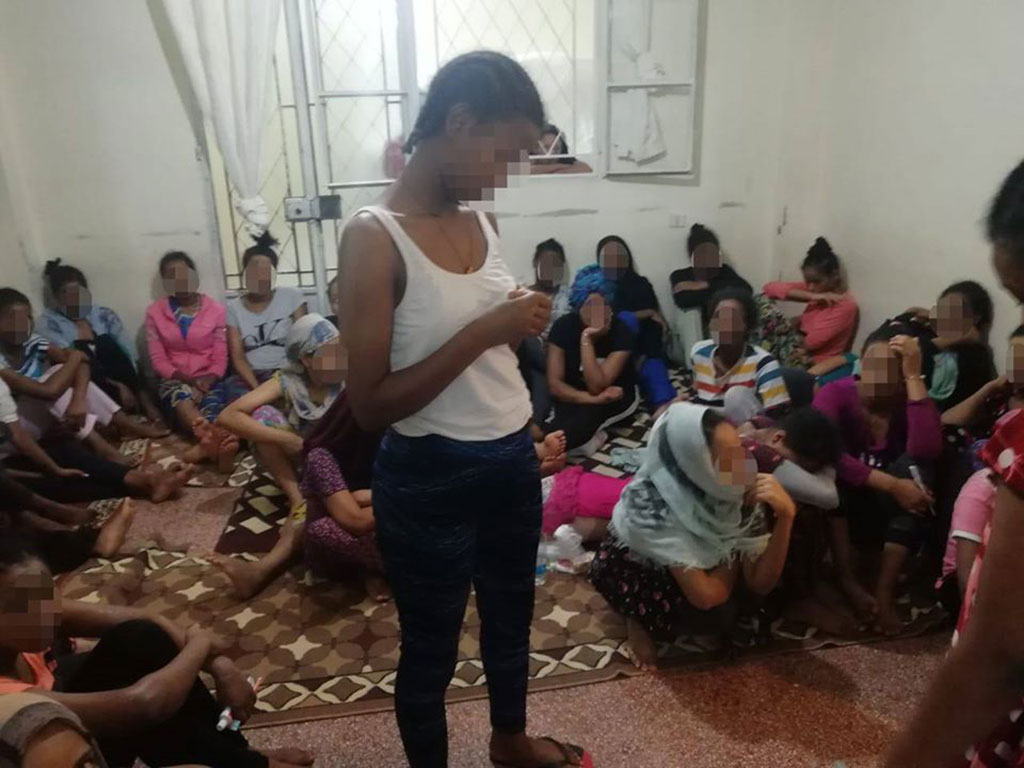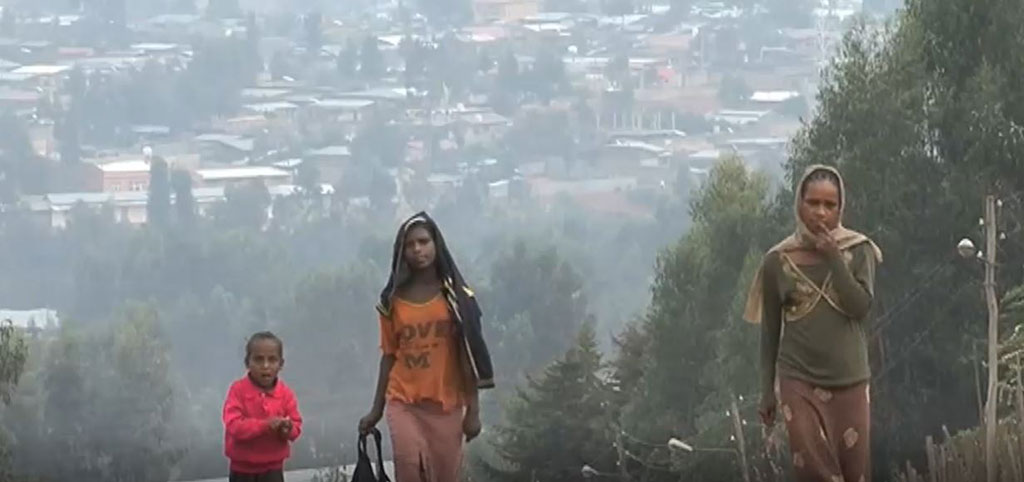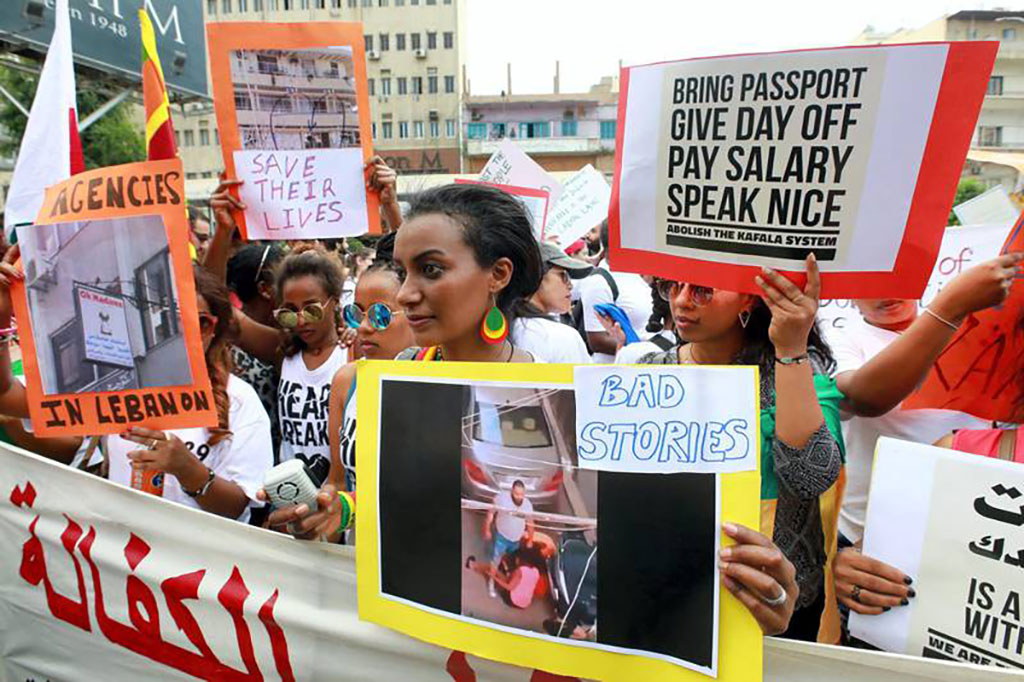Open Letter to the Ethiopian Government from Ethiopian Groups in Lebanon
11/10/2019
The Anti-Racism Movement signed on the below letter drafted by several ethiopian groups in Lebanonon October 10th, 2019 to demand better responses from their consultate in the country when it comes to the daily abuses their community is facing.
Open Letter to the Ethiopian Government
We Are Tired of Sending Home Corpses, We Need Immediate Action to Stop the Death and Abuse of Ethiopian Workers in Lebanon
To the Prime Minister
October 2019
We write this letter as Ethiopian communities in Lebanon, to urgently call on the Ethiopian government to take action on the suffering of hundreds of thousands of its citizens in Lebanon. The Ethiopian consulate has failed to support and defend these women for over a decade, in terms of individual cases or strong advocacy with the Lebanese government. We also need an investigation into the situation of the consulate’s shelter, which has at times held 130 women, in only two rooms. These women are survivors of abuse from their employers, and are trapped in the shelter for months, without any access to services and justice for what they’ve suffered.
The Situation of Ethiopians in Lebanon
In 2018, it was reported that there were 269,643 migrant workers in Lebanon, based on the number of work permits issued and renewed by the Lebanese Ministry of Labour. Out of this number, 161,311 are Ethiopians, almost all of whom are migrant domestic workers (MDWs). That’s more than half the total number of migrant workers in Lebanon, who primarily do domestic labor. These are only the official numbers. We believe that there are at least another 100,000 Ethiopian workers in Lebanon who have been forced into irregularity by the kafala system, who have no access to legal residency and in most cases even their passports, and are therefore not even included in this previous figure.
All migrant domestic workers in Lebanon are governed by the kafala system, which is controlled by the Lebanese government and supported by recruitment agents in Ethiopia, Lebanon, and other countries of origin, who benefit from charging high fees to women who want to migrate. Kafala requires a migrant domestic worker to enter the country with a Lebanese sponsor, typically an individual employer or a cleaning company, who is responsible for her work and residency permits, and can control every aspect of her life. In Lebanon, all domestic workers are explicitly excluded from the labor law, meaning that they do not have any legal right to a minimum wage, standard working hours or days off, or the right to unionize. The governments of Ethiopia and Lebanon have been in private negotiations about signing a formal bilateral agreement, but have not shared the information about what’s included with the Ethiopian community, so it is doubtful that this agreement alone would provide all of these rights.
According to a 2016 study by the International Labour Organization, a survey of Lebanese employers themselves, 94.3% of employers report withholding MDWs’ passports. Employers also report that: 73.8 % of MDWs do not receive a copy of their contract after signing it, and in many cases it is not provided in their own language. Around 40% of Ethiopian MDWs are paid less than 200 USD per month, whereas Filipina, Sri Lankan, Nepalese, and some other nationalities of MDWs tend to be paid more. 57.3 % of MDWs work seven days a week, with no day off. At least 36% of Ethiopian MDWs are sometimes or always locked inside the house. Again, these numbers come from surveying employers, often the ones perpetrating abuse, so we expect the real rates are even higher. In addition, our own experience shows extreme rates of physical, sexual, and psychological abuse. It is very common that MDWs are not paid their wages on time, or at all.
At the same time, Ethiopian domestic workers in Lebanon represent huge economic and social value for Ethiopia. Their work supports the development of Ethiopia as a country, and provides for their individual families. For example, Ethiopians in Lebanon contributed 7.3 million USD between 2006-2008 to the building of the Renaissance Dam. 90% of Ethiopian domestic workers in the Middle East are estimated to send remittances home.
This value comes at a huge price. In addition to the abuse and unspeakable labor violations, MDWs are dying at a rate of two women every week in Lebanon, according to data gathered by IRIN from the Lebanese General Security in 2017. Most of them are Ethiopian. These deaths are majority “suicides” or attempted escapes from the homes where women are working. The rate is only increasing; in 2008, Human Rights Watch reported 1 death per week and now it has at least doubled. Again, these are official statistics, and we expect the real number is much higher. These deaths are almost never properly investigated, by the Lebanese authorities or the Ethiopian consulate. In 2019 so far, at least 36 Ethiopian women have died, according to unofficial statements from the consulate. We believe the number is much higher.
The Ethiopian ban on emigration to Lebanon is not working. As researchers and activists have argued for years, bans are ineffective, as the Lebanese government still issues visas and work permits to Ethiopian women. This means that women are still coming to Lebanon, but through much more dangerous and irregular routes, often via smuggling, and that increases their vulnerability to more abuse while abroad. Who takes responsibility for the hundreds of Ethiopian citizens getting off a plane in Beirut every day? Who oversees the recruitment agencies and brokers still recruiting women?
Urgent Change Needed at the Ethiopian Consulate
The actions – and inaction – of the Ethiopian consulate in Lebanon over the last 10 years shows that they are unreliable, unresponsive to women in crisis, and often perpetuate further harm on Ethiopians seeking help. Most of the staff are untrained in necessary casework and legal protection knowledge, and are insensitive and abusive to the women who reach their door. Staff regularly turn women out on the street, scream at them, and side with Lebanese employers. We have documented cases where consulate staff make deals with employers to deport workers with only partial salary, without their knowledge. Consulate staff have no formal process and framework for providing legal protection and access to justice, and no political will to change the situation. There is no budget for a lawyer to take on women’s cases of abuse, unpaid wages, and sexual violence.
There are approximately 20 staff at the consulate, for at least 161,311 documented migrant workers. This is already an extremely low number of staff. But to make it worse, only 3 of the staff are caseworkers, with 2 supervisors. Even if we just count these documented workers, and ignore the additional ~100,000 undocumented workers who are the most vulnerable to abuse, that’s only 1 staff for every 8,065 Ethiopian citizens in Lebanon, and 1 caseworker or casework supervisor for every 32,262 people. If we add the ~100,000 undocumented workers, that’s 1 caseworker for every 52,262 people. This is a disaster. What is the real mandate of the consulate staff? What are they here to do? Who are they here to serve? Why is the consulate phone never answered? Why can’t there be enough staff to handle phone calls, emergency requests, and consultations or support even through the phone? Why are Ethiopian citizens kicked out of the consulate when they try to seek help?
The Shelter
Inside the Ethiopian consulate, there is a small shelter, run by the Ethiopian community in Lebanon. As the Ethiopian government knows, the shelter has no budget from the consulate. All costs are covered by the Ethiopian community in Lebanon and the groups created by MDWs. Community groups also regularly pay for MDWs’ medical costs, legal fees, and the cost of repatriation. Because the consulate refuses to take responsibility, the burden on the Ethiopian community in Lebanon is huge.

If the conditions were decent, the shelter would hold 30 women maximum. Now, it hosts 50 to 130 women at once. The two rooms are only 3 by 3.5 meters each, and women sleep on shared mattresses donated by NGOs and Ethiopian community groups, including Mesewat, 50 Lomi, Fikat, and others. The mattresses are removed from the floor during the day, and returned at night. There are no beds. There are no activities, no lawyer, no social worker or counselor. There is only 1 bathroom, for up to 130 women. The shelter is locked, and the women cannot go out.
Although the shelter is very small, between 2-6 new women come to the shelter every day. We estimate about 15% of the women in the shelter have mental health problems, most likely because of all of the abuses that they have suffered.
All of the women are victims of abuse and violence from their employers, and are waiting for justice and repatriation. Most are waiting for salaries they will never get, and accountability for what they have suffered. Even some want to stay to be paid, hoping the support of the consulate can get their wages, but because this process can take 5-12 months, they lose their hope and want to leave. Many women become depressed, and those without mental health issues when they entered the shelter often start to show signs of anxiety and other mental health problems, because of the conditions and because the consulate is not following up on their cases of repatriation, unpaid salary and abuse. The consulate forgets or ignores the cases of many women in this shelter, and those who are sent to other shelters run by Lebanese NGOs.
The consulate staff don’t like to visit the women. Staff avoid passing by or going in the shelter at any cost, so they don’t have to deal with the questions and complaints. They don’t take threats of self-harm seriously, although many women, especially those who have been waiting in the shelter for more than 5 months, keep repeating their intention of committing suicide because they can’t handle this constant state of waiting and losing what remains of their lives any longer.
When confronted with this situation, the consulate throws the blame onto the Lebanese General Security completely, claiming that they have no say in the long periods of wait and lengthy processes. We agree that General Security is one of the main barriers to access to justice for Ethiopian MDWs. However, we have seen the consulate pressure GS in specific cases, so we know that repatriation and investigation can be accomplished more quickly. GS often deports migrant workers extremely quickly, if there is a severe case or the potential of a scandal. And since Ethiopian MDWs themselves are constantly under threat of detention and deportation in Lebanon, it is the responsibility of the consulate to advocate with the Lebanese government directly for change, rather than to maintain the status quo.
Instead, the consulate has been complicit in this abuse. They don’t provide support needed, they don’t seem to pressure GS to more quickly address these files, and they don’t follow up with women themselves. Many women are stuck in Lebanon indefinitely, unable to go home, to legally work, or get help from their government.
The consulate does not consider themselves accountable to the community here, and intimidates and shuns anyone who questions them on their processes, budget, and management of cases and the shelter. They have tried to hide the truth about the conditions of the shelter from the public for too long, by sending Ethiopian women to other shelters, and by preventing visits from the media. The consulate does not report the real scope of the problem to the government at home, just numbers of the cases that they see. It is a one-sided story; they send information on only a small percentage of the problem.
Let us look back at two of the cases that made it to the media in the last decade:
In 2012, Alem Dechasa, a mother of two children in Ethiopia, was viciously beaten in front of the Ethiopian consulate in Beirut and dragged away by men working for the recruitment agency that brought her to Lebanon. This occurred in front of consulate employees, who did not intervene. The agency took her to a psychiatric hospital, where she was committed suicide three days later. A video of the attack was released on Lebanese and international media.
Lembibo, a 26-year-old Ethiopian woman, was found drowned in the swimming pool at the home of her recruitment agent in the south of Lebanon, in May 2018. She had been working in her employers’ home, and some activists believe she became pregnant after she was raped in Lebanon. Her baby was born alive, but died within a few hours according to the medical report, and a video of Lembibo was released of her begging to see the baby. Several days after the birth, she was found dead at the agent’s home. Even though both Lebanese and Ethiopian groups called for an investigation into her alleged murder, the consulate did not properly investigate her death, or provide legal support.
Between the deaths of Alem in 2012 and Lembibo in 2018, and an uncountable number of tragedies that happened in between, almost nothing has changed. Ethiopian women in Lebanon continue to face and endure unspeakable violence, while our consulate has repeatedly failed at protecting and safeguarding the rights of its citizens. This needs to stop.
We call for the following changes, to ensure that the consulate represents and acts for our needs, as Ethiopian citizens and workers in Lebanon:
- Changing the status of the Ethiopian consulate in Lebanon to the level of an embassy
- The recruitment and training of reliable, qualified, and skilled caseworkers at the consulate, to properly investigate cases of death, suicide, violence, abuse, labor violations, and needs for repatriation
- The recruitment of at least one full-time lawyer working at the consulate, directly on these cases
- The allocation of a budget by the Ethiopian government for the shelter at the consulate
- Humane treatment of women reporting abuse and unpaid wages, including change to policy so they can remain free while awaiting justice and repatriation, instead of in Lebanese government detention or the shelter at the consulate.
- Stronger advocacy with the Lebanese government for basic human rights and labor rights, and access to justice for Ethiopian migrant workers in Lebanon. This should include:
- The implementation of a transparent, strong bilateral agreement with the Lebanese government on the conditions of workers, including at least minimum wage, limits on working hours, a weekly day off, and other basic working rights.
- Thorough, transparent, and proper investigation of reports of abuse, violence, death, and suicide
- Long-term change to the kafala system
- Take action to stop human traffickers in Ethiopia and then lifting the ban on Ethiopian workers traveling to Lebanon.
Signed by
Mesewat
Egnalegna besidet
50 Lomi
Fikat le Ethiopia
Supported by:
Anti-Racism Movement in Lebanon
The Knowledge Workshop
The A Project
Related Posts
Have Any Questions?
To inquire about this statement and the context, email us or fill the form.
Join Our Newsletter
At the Anti-Racism Movement (ARM), we are constantly working on a multitude of different activities and initiatives. Most of our activities are only possible with the help of dedicated and passionate volunteers who work in collaboration with our core team.
The Anti-Racism Movement (ARM) was launched in 2010 as a grassroots collective by young Lebanese feminist activists in collaboration with migrant workers and migrant domestic workers.
Quick Links
Useful Links
This work is licensed under a Creative Commons Attribution 4.0 International License.
Developed by CONCAT


